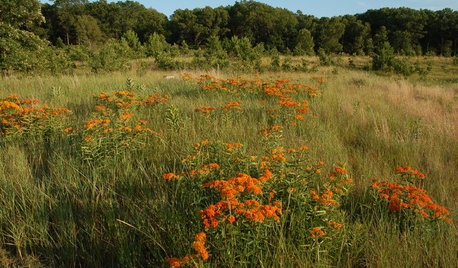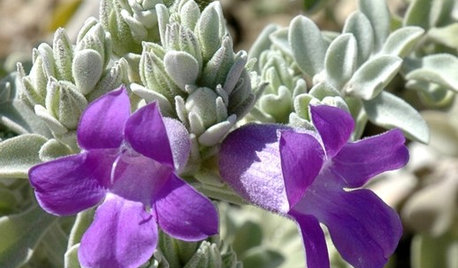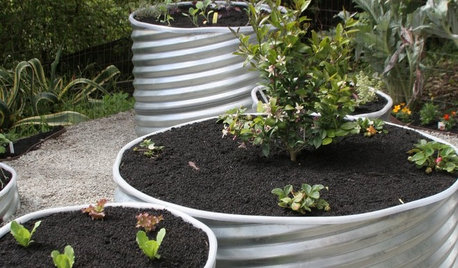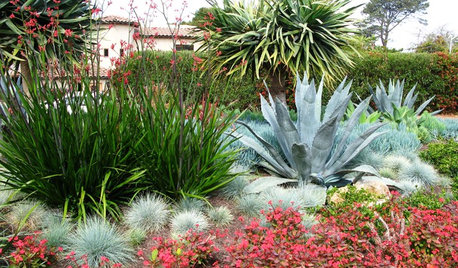Will mulching over hard compacted soil help it to soften?
viche
14 years ago
Featured Answer
Sort by:Oldest
Comments (30)
caroline1
14 years agoRelated Professionals
Norfolk Landscape Architects & Landscape Designers · Bellefontaine Neighbors Landscape Contractors · Byram Landscape Contractors · Euclid Landscape Contractors · Gloucester Landscape Contractors · Pahrump Landscape Contractors · Rio Linda Landscape Contractors · River Ridge Landscape Contractors · Ronkonkoma Landscape Contractors · Saint Paul Landscape Contractors · San Carlos Park Landscape Contractors · Wilton Landscape Contractors · North Aurora Decks, Patios & Outdoor Enclosures · Orland Park Decks, Patios & Outdoor Enclosures · Towson Decks, Patios & Outdoor Enclosuresviche
14 years agojas4141
14 years agogardenlen
14 years agoviche
14 years agojas4141
14 years agojas4141
14 years agobswampy
14 years agoviche
14 years agoKimmsr
14 years agoDan _Staley (5b Sunset 2B AHS 7)
14 years agojas4141
14 years agoDan _Staley (5b Sunset 2B AHS 7)
14 years agoviche
14 years agojoepyeweed
14 years agoKimmsr
14 years agoseedsilly
14 years agojolj
13 years agogooseberryfool
13 years agoKimmsr
13 years agogoudananda
13 years agorhizo_1 (North AL) zone 7
13 years agoluckygal
13 years agotoffee-el
12 years agoKimmsr
12 years agoazmab
12 years agotoffee-el
12 years agoKimmsr
12 years agoazmab
12 years ago
Related Stories

GARDENING GUIDESHow to Pick a Mulch — and Why Your Soil Wants It
There's more to topdressing than shredded wood. Learn about mulch types, costs and design considerations here
Full Story
GARDENING GUIDESGardening Solutions for Heavy Clay Soils
What’s a gardener to do with soil that’s easily compacted and has poor drainage? Find out here
Full Story
GARDENING GUIDESThe Art of Green Mulch
You can design a natural garden that doesn’t rely on covering your soil with wood and bark mulch
Full Story
GARDENING GUIDESHow to Stop Worrying and Start Loving Clay Soil
Clay has many more benefits than you might imagine
Full Story
GARDENING GUIDESGreat Design Plant: Try Blue Bells for Blooms in Dry Soil
This shrub’s violet-blue flowers and silvery foliage brighten low-water gardens all year long
Full Story
CONTAINER GARDENSContainer Gardening Basics: The Dirt on Soil
Learn the types of potting soil available and the best mixes to help your containers thrive
Full Story
GARDENING GUIDESGarden Myths to Debunk as You Dig This Fall and Rest Over Winter
Termites hate wood mulch, don’t amend soil for trees, avoid gravel in planters — and more nuggets of garden wisdom
Full Story
GARDENING GUIDESNew Ways to Think About All That Mulch in the Garden
Before you go making a mountain out of a mulch hill, learn the facts about what your plants and soil really want
Full Story
GARDENING GUIDESGardening Solutions for Dry, Sandy Soils
Has your desert or beachy site withered your gardening creativity? Try these ideas for a beautiful, easy-care landscape
Full Story
GARDENING GUIDESGrow a Beautiful Garden in Alkaline Soil
Got alkaline soil? Learn how to manage it and the many beautiful plants that will thrive in this ‘sweet’ soil
Full Story







Dan _Staley (5b Sunset 2B AHS 7)